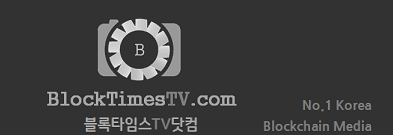Why the BitMEX Case Could Change the World of Finance
Anatoliy Knyazev, Co-Founder at EXANTE
The BitMEX case has shown that crypto businesses must work according to the rules of the existing financial system, as far as the US is concerned. The US authorities have made it clear that the crypto sector, including its ‘gray’ alleys, is now under control and will have to play by the rules.
New risks for the crypto currencies and exchanges
The BitMEX crypto exchange remains one of the largest venues that hasn’t required KYC. Another major exchange Binance hasn’t imposed any documentation requirements for the trades under 2 BTC. Now, it will most likely introduce mandatory KYC, regardless of volumes.
Compared to the BitMEX case, the sluggish action of the New York Attorney Office against Bitfinex and Tether seems pretty liberal. That said, after the BitMEX events the risk has grown for Tether holders and there may be new repercussions. The authorities’ message is loud and clear - there will be no trades at decent exchanges without KYC. The control of crypto exchanges will resemble that of regular financial companies in Europe and the US.
Closure of long positions and withdrawals led to the decrease of Bitcoin quotes. However, BTC has shortly played back the drop and resumed growth. BitMEX is a big player but not the whole industry.
The other case is force majeure. An example of such force majeure would be termination of BitMEX operations and cash withdrawals. Due to huge liquidity and low commissions, the exchange has been a No. 1 platform for many arbitrageurs. If the worst came to the worst, they would get stuck and the balance of liquidity would be compromised. This would provide a negative impulse to market players and might result in a domino effect and the BTC collapse.
Why Defi won’t save the crypto world
Given the BitMEX situation, it’s obvious that crypto exchange players will either have to comply or switch to DeFi. That said, DeFi may cause potential troubles of its own. BSA (Bank Secrecy Act) is a general provision that applies to both financial companies and individuals should crypto exchange be their occupation rather than a one-time operation.
It’s crucial to understand that accusations against BitMEX build on alleged breach of a complex of rules, rather than a specific incident. Any business in the world that services (or may service) US clients and develops and markets itself in the US - may fall under these rules. The popular DeFi project Uniswap is no exception. Its developers claim that they cannot check the client’s country or perform AML according to the US laws since “it’s a smart contract”. Does it hold Defi exchanges free from liability? It probably doesn’t...
Although the Department of Justice investigates Uniswap, this doesn’t mean they will arrest smart contracts. However, there are always people who develop software, appstore apps or do marketing. The US laws, BSA in particular, can make these people liable.
In the worst case scenario, we’ll be left with a ‘stripped down’ smart contract that we might use directly. In practice, 99% of current users will ditch it with the absence of applications and marketing. We witnessed this happening with decentralized exchange Etherdelta whose creator and website admin had got heavily fined.
All are equal under the law, yet some are more equal
The feasibility of new cases is an open question. The BitMEX exchange has been the most prominent and most unregulated in the recent years. Others were either smaller or more controllable. Most exchanges play by the rules of the existing financial system. They yield money for the state and raise no concerns for the US monetary control. The BitMEX’s case may have been aggravated by the company’s intention to sneak out of the US jurisdiction to the Seychelles and compromise with the local authorities. Don’t be misled: the US authorities are always on the alert.
It’s of utmost importance that the Department of Justice and CFTC came after private individuals. They were not charged with terrorism, yet the sentence matched one suitable for a criminal, rather than administrative offense as it was in the TON case. The BitMEX management now faces up to five years in jail.
Global banks often find themselves in the middle of an AML scandal. They have to pay their fines, yet there are no individual top managers among the defendants. Like Orwell wrote: “All are equal, but some are more equal than others.” Looks like it’s the banks that are ‘more equal’ now.
ⓒ 4차산업혁명의 중심기술 블록체인밸리(Blockchain Valley), 블록타임스TV

 다스아카데미 X 유즈페이 50,000포인트 지급 이벤트 진행
다스아카데미 X 유즈페이 50,000포인트 지급 이벤트 진행
 위믹스3.0 최초의 DAO ‘원더다오’, 노드 카운슬 파트너 합류
위믹스3.0 최초의 DAO ‘원더다오’, 노드 카운슬 파트너 합류
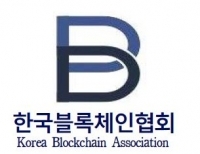 한국블록체인협회, FATF 가이드라인 준수 및 객관적, 중립적 기술표준 수립을 위해 트래블 룰 적용 대상인 모든 회원사의 참여와 협력 논의해 나갈 것
한국블록체인협회, FATF 가이드라인 준수 및 객관적, 중립적 기술표준 수립을 위해 트래블 룰 적용 대상인 모든 회원사의 참여와 협력 논의해 나갈 것
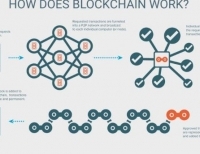 [Weekly 기획+](블록체인 패권) 글로벌 IT기업, 블록체인 본격화...韓-中-美 삼국지 펼쳐지나
[Weekly 기획+](블록체인 패권) 글로벌 IT기업, 블록체인 본격화...韓-中-美 삼국지 펼쳐지나
 온더, 심준식 대표 신규 선임
온더, 심준식 대표 신규 선임
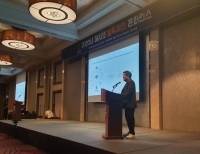 미디움, 2020년 해시넷 블록체인 컨퍼런스 주제 발표.. "패브릭의 성능한계를 극복하다"
미디움, 2020년 해시넷 블록체인 컨퍼런스 주제 발표.. "패브릭의 성능한계를 극복하다"
 [동영상 인터뷰+] 블록패치 글로벌 비즈니스 담당 콘라드 "블록체인 기술 적용할 수 있는 산업 발굴에 주력해야 할 것"
[동영상 인터뷰+] 블록패치 글로벌 비즈니스 담당 콘라드 "블록체인 기술 적용할 수 있는 산업 발굴에 주력해야 할 것"
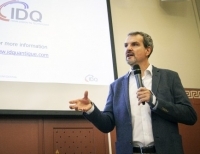 SK텔레콤, 유럽·미국 양자암호통신 사업 수주… 글로벌 대표 5G 보안기업으로 우뚝
SK텔레콤, 유럽·미국 양자암호통신 사업 수주… 글로벌 대표 5G 보안기업으로 우뚝



